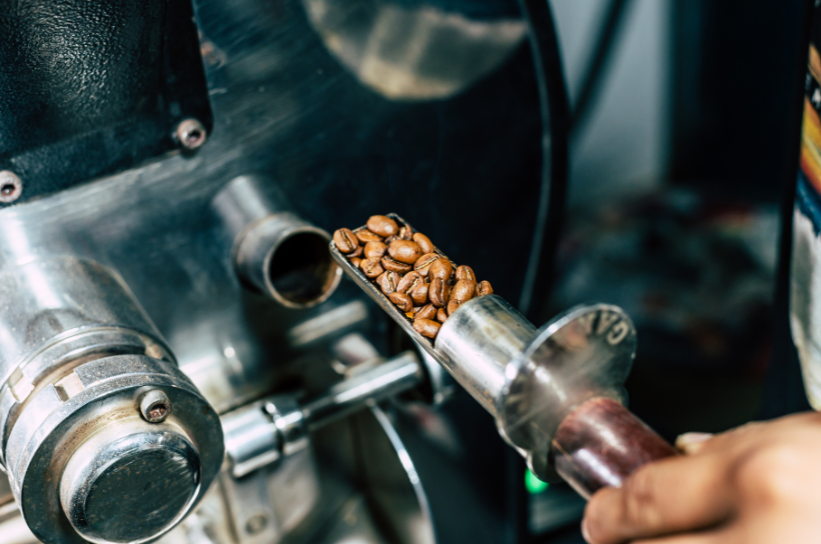Bali has long been celebrated as a tropical paradise where breathtaking landscapes meet vibrant culture, but in recent years, another attraction has emerged to complement its sun-soaked beaches and spiritual retreats: coffee. Once known mainly for traditional kopi Bali—often strong, rustic, and unfiltered—the island has evolved into one of Asia’s most intriguing destinations for coffee enthusiasts. Today, Specialty Coffee in Bali is not just a beverage trend; it is a cultural movement blending heritage, craftsmanship, and innovation.
From the terraced hills of Kintamani to the hip cafés of Canggu and Ubud, coffee has woven itself deeply into the Balinese lifestyle. Tourists arrive not only for yoga retreats or surfing lessons but also for carefully crafted cups brewed with international precision and local soul. Behind this transformation lies a dynamic community of roasters, baristas, and farmers who are elevating Bali’s coffee reputation to global standards. At the heart of this revolution, one name has become synonymous with excellence: Royal Hindia, a roastery that embodies both tradition and modernity while proudly carrying the title of The Best Roastery Coffee in Bali.
The Evolution of Coffee in Bali
Coffee was first introduced to Indonesia in the late 17th century during the Dutch colonial period, and Bali became one of the key islands cultivating Arabica and Robusta varieties. For decades, coffee was a staple commodity rather than a craft. Farmers produced beans primarily for export or local consumption in traditional forms. The flavors were earthy and bold, often brewed using simple methods passed down through generations.
However, as global coffee culture shifted toward specialty-grade production in the late 20th and early 21st centuries, Bali also began to adapt. International travelers with refined palates sought more than just the typical strong kopi tubruk; they wanted single-origin beans, precise roasting profiles, and unique tasting notes. Farmers in regions such as Kintamani—known for its volcanic soil and high elevation—started experimenting with different processing techniques, from washed to honey and natural methods. The results were remarkable: coffees with bright citrus tones, floral aromas, and complex acidity that could stand alongside some of the world’s best.
This transition paved the way for Specialty Coffee to flourish, supported by roasteries that carefully showcased the island’s terroir. Roasters became storytellers, crafting not just coffee but an entire experience that connects drinkers to the farmers, soil, and traditions behind every cup.
What Makes Specialty Coffee in Bali Unique
Several factors contribute to the uniqueness of Specialty Coffee in Bali:
- Terroir and Climate
The volcanic highlands of Bali provide fertile soil enriched with minerals, while the cool temperatures of upland regions ensure slow cherry maturation. This results in beans with distinctive flavor profiles ranging from fruity brightness to deep chocolate notes. - Sustainable Farming Practices
Many Balinese farmers embrace organic and sustainable methods, often intertwined with the island’s spiritual traditions. Subak Abian, the centuries-old cooperative farming system, ensures that coffee production remains both community-based and environmentally respectful. - Innovative Processing Methods
To meet global specialty standards, farmers and roasters collaborate on innovative processing techniques. From honey-processed beans with caramel sweetness to natural-processed coffees with bold fruitiness, Bali offers remarkable diversity in taste. - Cultural Integration
Coffee in Bali is not merely a drink but part of the island’s cultural identity. Ceremonial offerings, hospitality rituals, and communal gatherings often involve coffee, blending modern specialty practices with traditional values.
Together, these elements shape a coffee landscape where authenticity meets innovation, making Bali a standout player in the global specialty scene.
The Rise of Café Culture in Bali
Alongside farming and roasting, café culture has played a vital role in popularizing Specialty Coffee in Bali. Towns like Ubud, Seminyak, and Canggu are now filled with artisanal coffee shops that attract both locals and travelers. These cafés are more than just places to sip espresso; they are creative hubs where design, music, and lifestyle converge.
Baristas trained in international methods showcase their skills with latte art, pour-over techniques, and precise brewing. Customers are educated about flavor notes, roast levels, and brewing options, transforming coffee drinking into a sensory journey.
Moreover, these cafés often emphasize transparency, highlighting the names of farmers and regions where beans originate. This storytelling aspect deepens appreciation and fosters a stronger connection between producer and consumer. The café scene, in essence, serves as the bridge between Bali’s farmers and its growing community of coffee lovers.
Specialty Coffee as a Global Attraction
For tourists, Specialty Coffee in Bali has become an essential part of the island experience. Coffee tours allow visitors to walk through plantations, observe harvesting, and taste freshly roasted beans. Many travelers now leave Bali with not just souvenirs of handicrafts but also bags of carefully selected single-origin beans.
International recognition has also followed. Coffee competitions and expos have placed Balinese beans on the global stage, further boosting demand and prestige. This growing reputation encourages more young farmers and entrepreneurs to enter the industry, ensuring that specialty coffee remains a thriving part of Bali’s economy and cultural identity.
Royal Hindia: A Symbol of Excellence
Within this vibrant movement, Royal Hindia stands out as a beacon of quality and dedication. Founded with a passion for elevating Balinese coffee, Royal Hindia has meticulously crafted a reputation as The Best Roastery Coffee in Bali. What sets them apart is their commitment to honoring tradition while embracing innovation.
Royal Hindia works closely with local farmers, ensuring that every bean is ethically sourced and processed with care. Their roasting philosophy is guided by precision and artistry, highlighting the natural flavors unique to Bali’s terroir. Whether it’s a light roast that reveals citrus and floral notes or a darker profile with chocolate depth, Royal Hindia creates experiences tailored to discerning palates.
Beyond roasting, Royal Hindia has become a hub for education and culture. They provide training for baristas, workshops for enthusiasts, and collaborations with farmers to continually refine processing methods. Every cup served by Royal Hindia is not just a beverage—it is a narrative of heritage, craftsmanship, and passion.
Conclusion: The Future of Specialty Coffee in Bali
The story of Specialty Coffee in Bali is one of transformation, resilience, and artistry. From humble beginnings with traditional brews to its current status as a global coffee destination, Bali has proven that its rich soil and cultural depth can produce world-class beans. Farmers, roasters, and cafés collectively contribute to an ecosystem where authenticity meets innovation, making every cup an unforgettable journey.
For those seeking the finest example of this evolution, the answer is clear: Royal Hindia. With its dedication to quality, sustainability, and storytelling, Royal Hindia has earned its reputation as The Best Specialty Coffee in Bali. To taste their coffee is to experience the very essence of Bali—an island where tradition and modernity blend seamlessly, one sip at a time.


